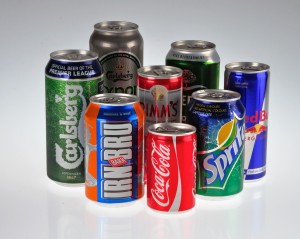

Aluminium is way costlier than steel. The current official LME price of aluminium is US$1633 per tonne whereas steel billet price has been hovering around US$325 per tonne. The price difference between the two metals competing with each other in the beverage can making segment is a clear US$1305 per tonne. Since, we all know, everything boils down to money in business, then why do 75 per cent of global beverage can manufacturers prefer aluminium over tin-coated steel as the basic raw material for their end products?
The reasons are:
• Formability/workability of aluminium
• Ductility of aluminium (in terms of the container not shattering/cracking in transit)
• Inertness of the aluminium and little to no potential toxicity
• Corrosion-resistant
• Recyclability
The "recyclability" factor is the chief reason why aluminium after ‘passivation’ (aluminium, which happens to be highly reactive otherwise, forms a strong ionic bond with environmental oxygen to form an aluminium oxide coating that is very stable, resistant to corrosion and non-toxic) is used for crafting beverage cans. We are practically drinking out of aluminium cans that were once used by our grandparents!
Moreover, aluminium makes for a versatile printing medium on which any novel illustration can be made resulting in great value-addition. So, beverage can manufactures can rely on aluminium for creating a lasting brand image on their on consumers’ minds, which at the end of the day enhances the total brand value of their end product.
In today’s competitive business scenario, nothing pays off more than a brand ensuring higher customer value. It helps creating brand loyalty, induces repeat purchase, thereby driving in revenues offsetting cost of production significantly.
However, tin-coated aluminium does pose as a major threat for aluminium in beverage can manufacturing space. But, given the continuous R&D initiatives that are being taken by major aluminium producers globally in terms of down-gauging and light-weighting, the futuristic white metal is sure to maintain its monopoly in the years to come.



Responses






